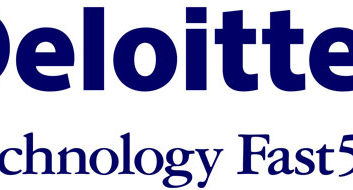Q&A: Jean Hoffman, CEO, Putney – “Entrepreneurs are Problem Solvers”
Posted by | March 30, 2012
 For the next installment of our partner company Q&A series, we turn to the life sciences side of our portfolio and interviewed Jean Hoffman, Founder, President and CEO of Putney. Jean has enjoyed a successful career, both before and after her venture into entrepreneurship. In this Q&A session, Jean highlights some of the factors that led to that success.
For the next installment of our partner company Q&A series, we turn to the life sciences side of our portfolio and interviewed Jean Hoffman, Founder, President and CEO of Putney. Jean has enjoyed a successful career, both before and after her venture into entrepreneurship. In this Q&A session, Jean highlights some of the factors that led to that success.
Read on to find out how effective communication, hiring great employees, and building strong business relationships are helping Jean and the Putney team to create affordable generic pet medicines to keep pet family members healthy at a lower price point.
Why did you choose to become an entrepreneur?
I saw a need—a problem that needed solving—and I was at a stage in my life when I could start something new and take a risk. When I started my first business, Newport Strategies, I was fortunate enough to have already achieved considerable success in my career. I was named a CEO for the first time at the age of 29, and I could see that, with continued hard work, the privilege of some wonderful mentors and luck, I would continue and be even more successful.
But I could also see that that alone wasn’t going to fulfill my life, so I made the decision to leave my position as CEO in New York and move back to Maine. I thought hard about what I wanted to do next and what was going to be the most interesting thing for me to do. Starting a company and solving a need that I identified in the industry was something I felt extremely excited about.
My first company, Newport Strategies, identified the manufacturers of active pharmaceutical ingredients around the world and linked that proprietary data to other data to help generic companies choose profitable products to develop. In founding Putney, I saw the need for affordable generic pharmaceuticals so that people who have pet family members could afford to treat them when they become sick.
To what would you attribute your success?
Hard work, listening, and being able to distill information and make sense of it. I’ve been able to see patterns and things other people didn’t see, in part because they weren’t listening as hard as I was. Relationships too have been fundamental to my success.
What’s the most important lesson you’ve learned as an entrepreneur?
How to communicate. Not everyone sees things the same way I do, and it often takes repetition and more active listening to understand what people see and then be able to convince them to sign a deal, to join Putney, or to buy our products, for example. Communication is supremely important. I always knew that, but it has become ever more important. It’s one of the things that I’ve continued to learn about and feel the need to emphasize and improve on.
What’s your biggest business challenge right now?
Hiring great people and creating a bench of talent so that we can continue to hire to support our rapid growth. We look for people who have demonstrated success performing the particular jobs that we’re trying to fill. So if we’re looking for someone in regulatory affairs, we look for someone with a demonstrated track record of success at a generic drug company, particularly a human generic drug company, in the field of regulatory affairs.

Photo (L to R) from Putney, Inc.: Derek Chapman, Manager, Portfolio Growth Initiatives and Marketing; Tracy Sullivan, Executive Assistant; Jennifer Albert, Office Manager; Jean Hoffman, Founder, President and CEO; TJ Dupree, Chief Operating Officer; Patrick Powell, Vice President, Sales; and Derek Mills, Customer Service and Logistics Lead
We look for people who are smart, good communicators, and good team players. But overall, I’d say that the number one characteristic in successful employees on my team is a deep commitment and interest in learning and growing. They have a hunger to do better, to learn more, and to grow personally and professionally.
What advice would you give other entrepreneurs in the life sciences or the pharmaceutical space?
In the pharmaceutical space, the best advice I would give is to make sure that you have quality in every aspect of your organization and your operation. That means, in part, having sufficient depth and caliber of FDA expertise on your team. Because pharmaceutical companies are regulated by the FDA, you need employees who can advise your company and the manufacturing sites you own, or are working with, to ensure that they are in compliance with FDA current good manufacturing processes (cGMPs). This is the most important thing a pharmaceutical company can do.
How do you operate at Putney? How do you motivate your team? What’s the culture like?
People usually start smiling as soon as they walk in the door at Putney. They see the bright Putney colors and the Putney pets, our series of giant black and white photographs of pets on the wall. Most people’s screen savers are pictures of their pets. We have Putney pets on the website and on the back of everyone’s business card. So you walk into Putney and you get an immediate sense of our vibrancy, our energy, and our focus on pet health.
We put a lot of effort into recruiting the right candidates for the team, but we also are increasingly investing in training and team building activities so that everybody advances their skills and their overall understanding of the business goals of the company and the role of every member of the team in contributing to our success.
Putney is a very intense place and our people work closely together. They work hard to move the ball forward down the field, even into the evening hours. It’s a pretty exciting place to work right now. We schedule a lot of training here at Putney, so we have, for instance, a professor of finance from Babson’s Business School delivering a customized course called Putney Finance for all members of the team who don’t have MBAs. This completely customized course uses basic-level finance training, combined with Putney’s financials and Putney’s goals, to help both educate people here who are in technical roles or who don’t have a finance background, as well as share the financial goals of the company and how those goals are measured.
What’s your long-term vision for the veterinary market and pet generics in particular?
We see generic drugs for pets as an extraordinary opportunity to build a company as well as do something good for pets, pet owners, and veterinarians. It’s a unique opportunity in the pharmaceutical space, and we are very focused. We have the largest pipeline in animal health. We’re initially targeting the U.S., but we plan to build out internationally in the future. We see a huge opportunity here to provide high quality medicines that pet owners and veterinarians can afford and help improve the health of our pet family members.
What should startups look for in VCs, beyond just the financing? What are the core services that are most important for startups? What do startups tend not to think about?
One of the most important things to think about in raising capital is that raising capital isn’t just a one-time event. Venture capitalists and entrepreneurs tend to focus on closing the transaction, but closing the transaction is the beginning of the hard work involved in executing your plan. The process of raising money should really be about qualifying the best venture capitalists that you can build a long-term relationship with.
Financing is ultimately a partnership with your VCs. They’re going to have seats on your board, and they’re either going to be your best or your worst advisors. For that reason, it’s very important for entrepreneurs, especially the senior management team of a company, to make a good choice in VCs, and to have VCs who feel they’re making a good choice in you and your business, but also in your people, because you’re going to need to work together closely to succeed. And you’re going to need to work together even more closely when things go wrong.
One of the things that I like about Safeguard is that when I asked for references, Safeguard was happy to provide a long list of current and former CEOs who would speak openly with me about their experience working with Safeguard. After closing the investment transaction, I’ve attended a number of events that Safeguard holds for all of their partner company CEOs, members of the Safeguard team, and advisors. They bring us all together and encourage us to share ideas, to build relationships, and learn from each other. The Safeguard events for CEOs are terrific—Safeguard brings an attitude of candor and openness to the table.
What is your go-to news source?
The New York Times online newspaper—www.nytimes.com.
What’s your must-have app?
The Notes app. I organize my life in my phone, and I keep notes of to-dos for myself, for each of my direct reports, and for each of my board members on my iPhone. I find it’s a very handy way to help me keep organized.
For more information about Putney, please visit the company’s website (www.putneyvet.com).
Click here to read more in our Q&A Series with Safeguard Scientifics’ partner company CEOs.



